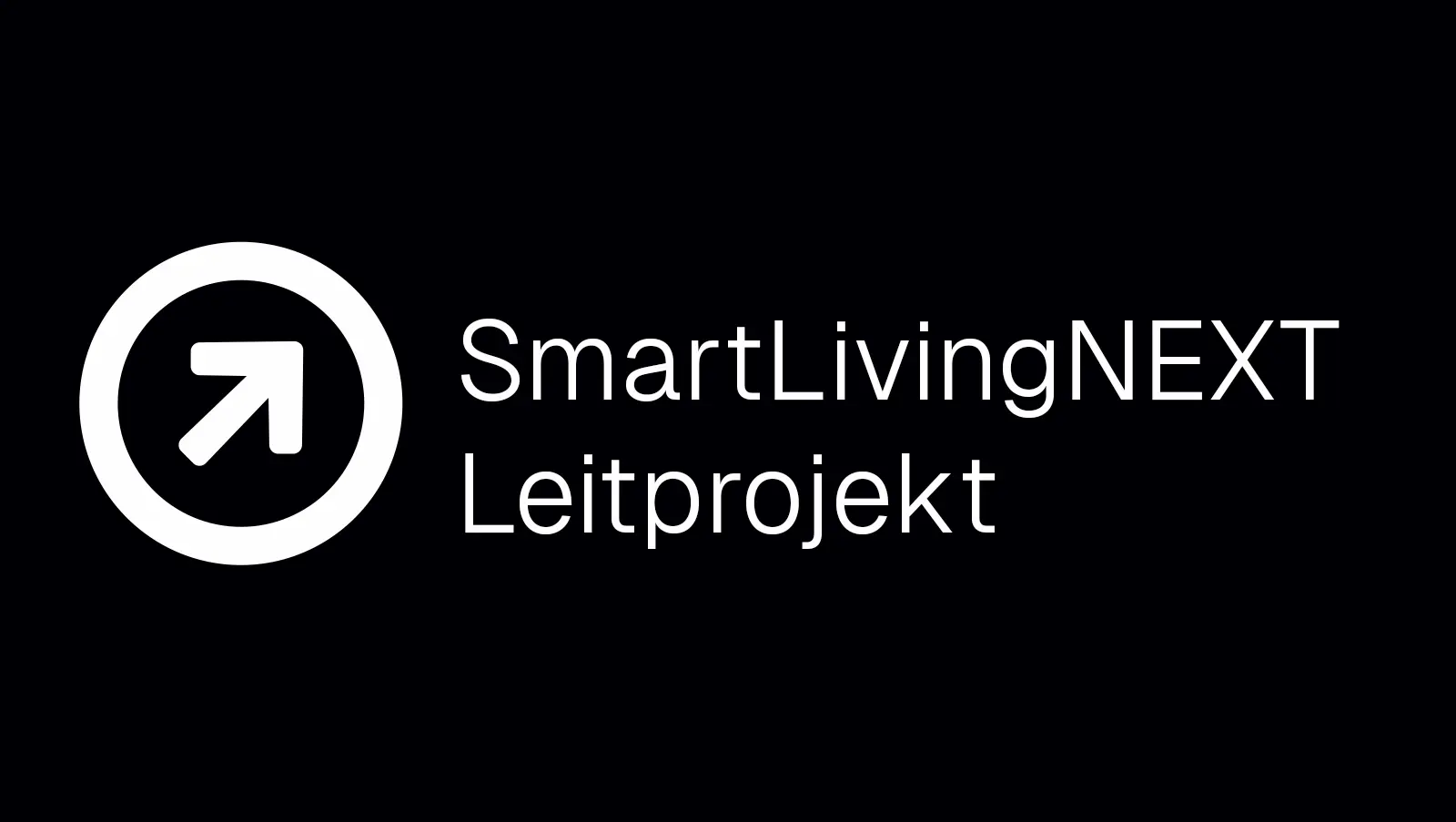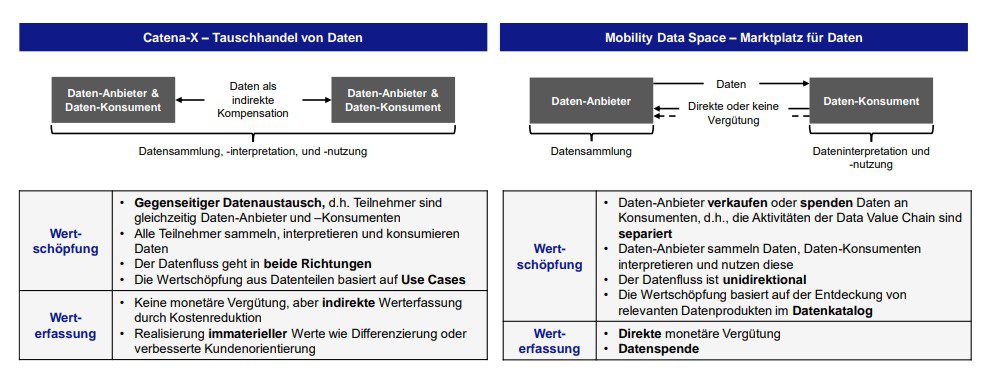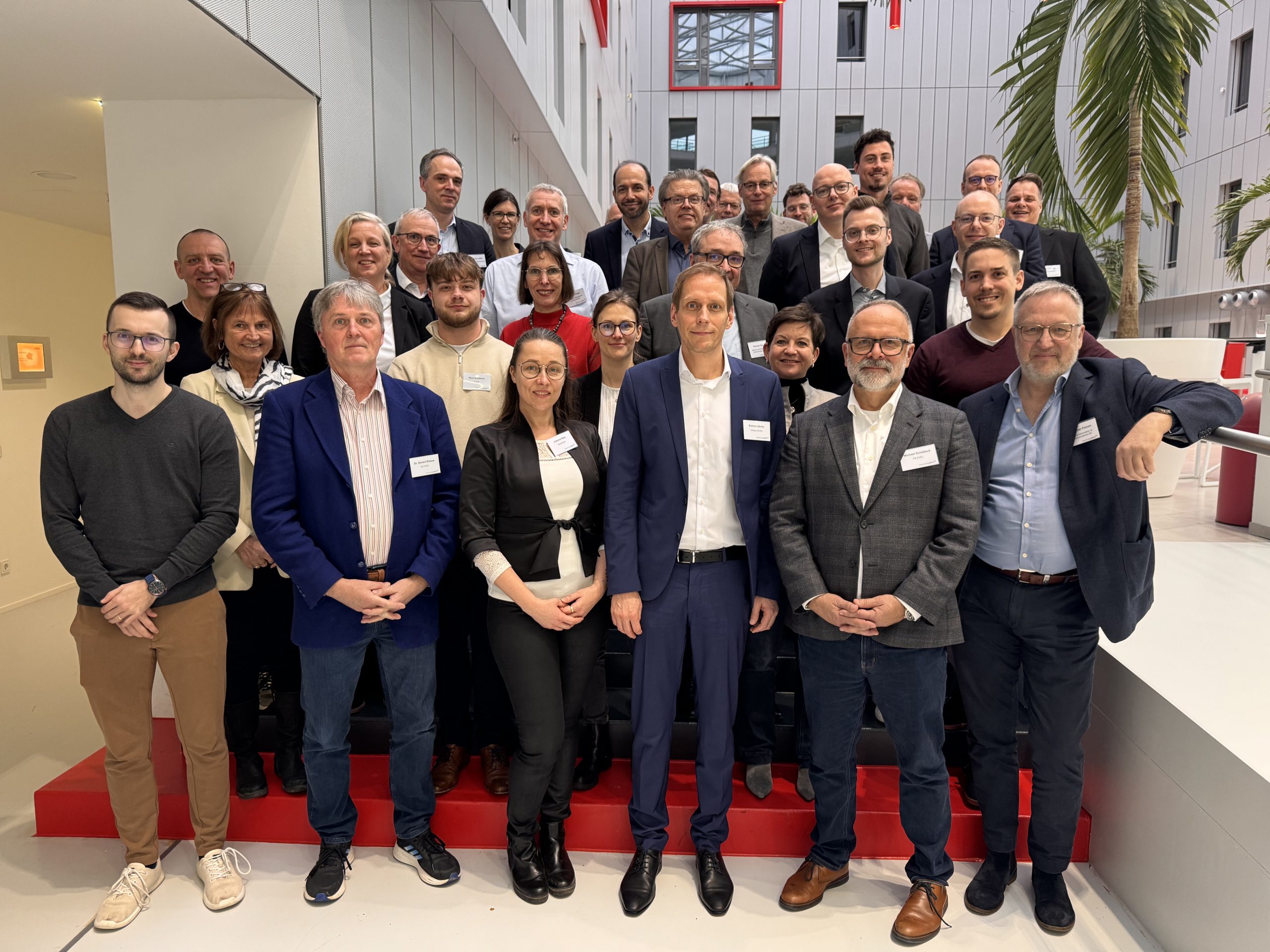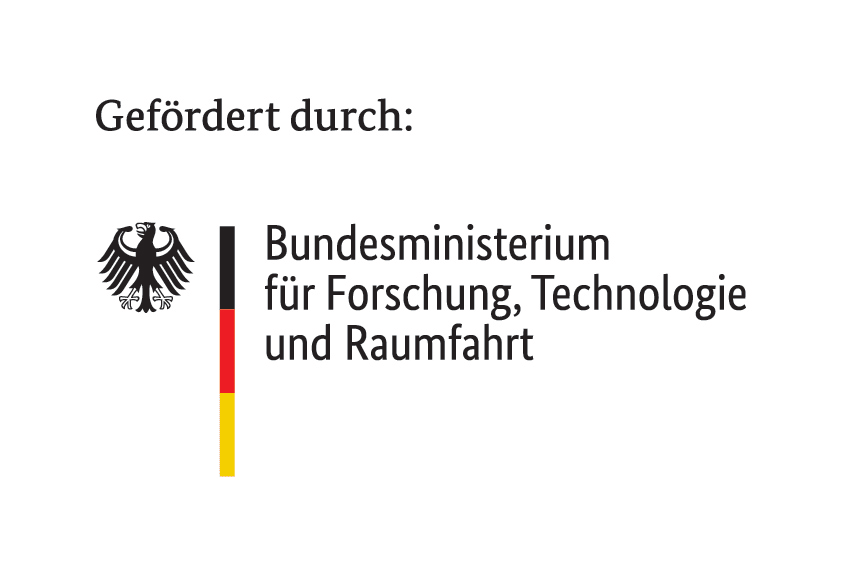The business value of data: Study explores possibilities for future business models for data ecosystems.
23. July 2025
3 minutes
SmartLivingNEXT, Catena-X and the Mobility Data Space (MDS) are among the first data ecosystems based on the Gaia-X initiative. A study conducted by consortium partner LMU Munich identifies suitable business models for these data ecosystems.

The shared data economy is revolutionizing all areas of society and the economy. The way in which companies generate value from data can take different forms. Two basic business logics can be distinguished here:
- The barter model (Catena-X):
Here, all participants are both data providers and data consumers. Data is mutually exchanged without direct monetary remuneration. Value is created through shared access to relevant data, which can be used for process optimization or decision support, for example. Value is captured indirectly, for example through cost savings or improved customer orientation.
- The marketplace model (SmartLivingNEXT, MDS):
In this model, the roles are clearly separated: data providers make their data available, while data consumers use it for their own purposes. Value creation is based on the fact that relevant data products can be found in a catalog and purchased. Value is captured through direct monetary remuneration or voluntary data donations.

While the barter model impresses with its reciprocity, the marketplace enables data to be monetized directly. Jana Ammann from LMU Munich specifies the challenge: “The central task remains the fair distribution of value and the recording of intangible values such as reputation or innovative ability. The monetization of data can make a significant contribution to value creation in decentralized data ecosystems. Direct monetization in particular makes it possible to clearly quantify the economic benefits, for example through cost savings or a stronger market position for the companies involved. At the same time, indirect forms of value capture such as process optimization or improved customer orientation should not be underestimated. Although these benefits are more difficult to measure, they can also make a decisive contribution to long-term competitiveness.”
The participating consortium partners LMU Munich, Materna and Forschungsvereinigung Elektrotechnik beim ZVEI e.V. are currently working on what the business logics in SmartLivingNEXT will look like in concrete terms. The study’s elaboration of the business model types in Catena-X and the Mobility Data Space provide valuable pointers here. In the long term, SmartLivingNEXT can thus serve as a blueprint for a balanced, sustainable data economy.
Listen to the article (in German):
Editorial office:
Maximilian
Metzner
Category:
SmartLivingNEXT




